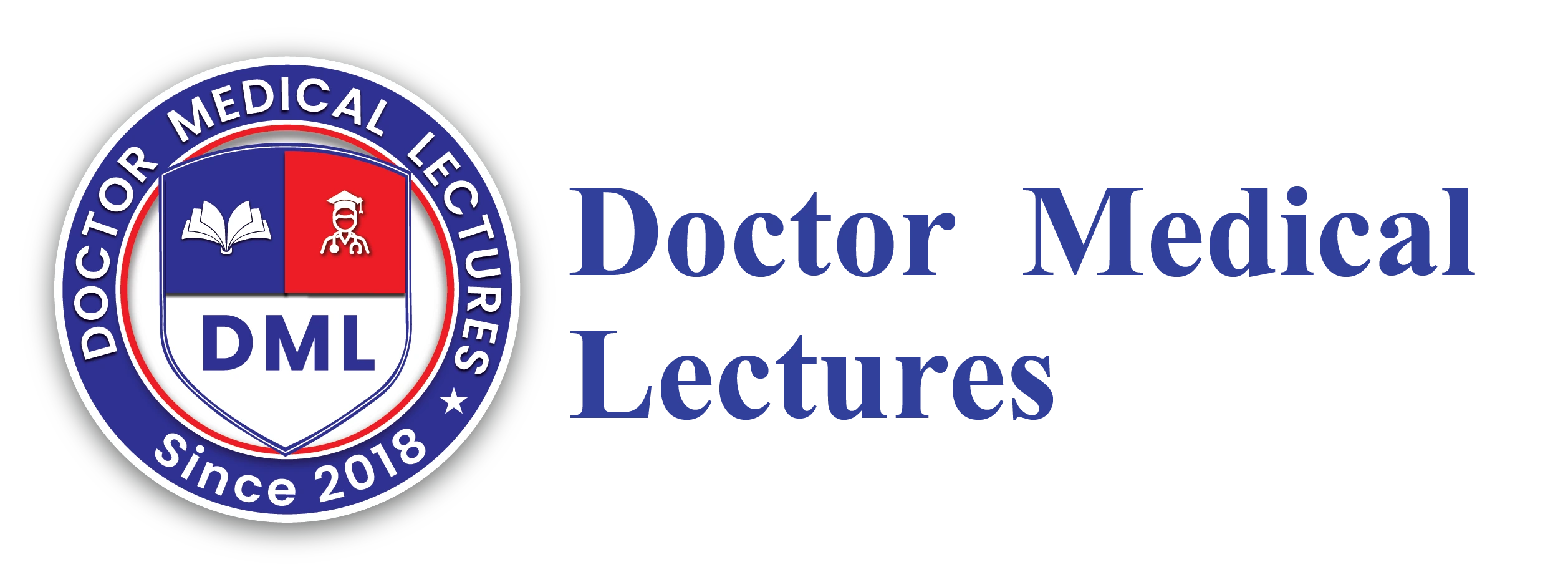Introduction
First Aid Training is an integral component of emergency preparedness and healthcare, equipping individuals with knowledge to quickly respond effectively in various kinds of emergencies. In Pakistan, First Aid Training provides people with knowledge to respond promptly and effectively in dealing with traumas or medical emergencies until skilled help arrives – the course covers wound care techniques as well as CPR (cardiopulmonary resuscitation) and basic life support skills.
The importance of First Aid Training in Pakistan cannot be emphasized enough. It helps students to learn how to respond rapidly to various emergencies. Including those that can happen every day or even more serious medical situations that need prompt treatment so that the injury is limited and further complications are prevented. These courses are especially important in a workplace environment, schools and other public spaces where emergencies and unexpected events might occur at any moment.
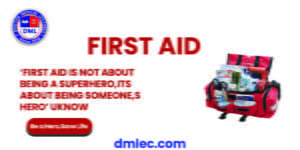
Moreover, the first aid in Pakistan usually has a module on Psychological First Aid (PFA). Advice from PFA can help address the emotional impact of trauma incidents (people experiencing mental distress) and make them feel secure, while linking to further mental health support if necessary. Available Pakistanwide PFA first aid training provides the physical and psychological aspects in emergency and gives confident approach.
First Aid In Pakistan First aid Training in Pakistan is a vital element to the safety and health of your community. It provides people with skills to work swiftly and effectively in emergency situations. Furthermore, developing capacity and resilience among communities all over Pakistan is essential for long-term safety and preparedness.
What Is First Aid?
First Aid In its most basic definition
First aid refers to any initial care given by individuals for injured or sick patients before more qualified medical help arrives. It aims to stabilize patients while also preventing further injury from worsening; and sometimes save lives. Moreover, first aid training provides individuals in Pakistan with the necessary skills to respond effectively to emergencies at work, home, and public areas.
Types of First Aid Training:
Basic First Aid
Basic first aid classes provide basic first aid skills such as managing burns, treating fractures and wounds, and managing injuries – an essential set of knowledge that parents in Pakistan must impart to their children as accidents frequently happen in households.
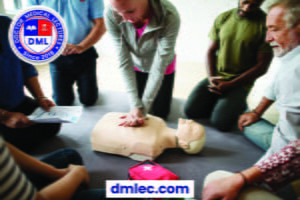
CPR (Cardiopulmonary Resuscitation)
Should always be performed after any injury has been sustained and to save lives.
CPR training can save lives in cases of cardiac arrest; thus it makes up one of the most comprehensive Pakistani first aid courses available today.
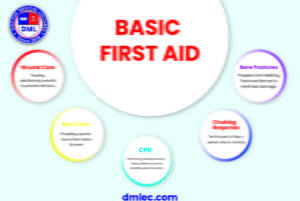
Workplace First Aid Training
In fields like construction and manufacturing, specific workplace initial aid courses can be an essential element of employee safety. These classes focus on injuries sustained on the jobsite while simultaneously equipping workers to quickly respond in emergency situations.
Importance of First Aid Training in Pakistan
Improving Emergency Response
Receiving first aid training can significantly enhance emergency medical response time in remote regions where access to hospitals may be slow or limited.
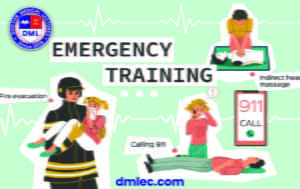
Road Safety in Pakistan
Pakistan experiences many road accidents every year. Education about first aid for both passengers and drivers could significantly lower fatality numbers through immediate help provided.
Workplace Safety
Under Pakistan labor laws, first aid training for employees at many companies is mandated. Meeting this legal obligation while simultaneously improving workplace safety is of the utmost importance.
Overview of First Aid Training Providers in Pakistan
Rescue 1122
A government emergency service also offers first aid education. Their training centers in major cities offer comprehensive programs designed to enhance emergency response.
Private Organizations
Pakistan boasts many private institutions such as hospitals and NGOs offering certified first aid training to corporate and individual clients alike.
First Aid Qualification Programs in Pakistan
Short Courses
Many organizations offer short courses designed to be completed quickly for both personal and professional reasons, offering certification quickly. These short-courses can provide certification within hours.
First Aid Diplomas
For those searching for greater insight, diploma courses on first aid and emergency care provide deep training. These advanced techniques courses combine both theoretical and practical instruction into each class.
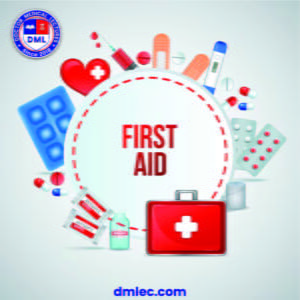
Online First Aid Certifications
Whilst using digital platforms is increasingly prevalent, first aid certification has become a viable training solution in Pakistan and has even reached remote regions.
Content of a Typical First Aid Course
CPR
CPR training is an integral component of first aid classes and includes classroom demonstrations as well as using models and mannequins to simulate real-life scenarios.
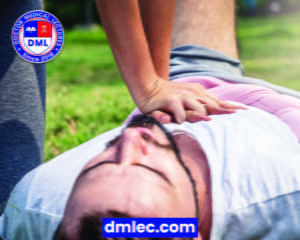
Wound Care
Understanding proper cleaning and bandaging of wounds is paramount in order to avoid infections.
Fracture Management
Basic courses also cover how to treat fractured bones until skilled medical help arrives.
Benefits of First Aid Training Saving Lives
1. Rapid Response in Emergencies
First aid training equips individuals to respond swiftly and effectively in emergencies such as chest pain, choking, or severe bleeding. As soon as an incident arises it’s essential that CPR and AED use be employed immediately in order to stabilize a patient’s condition until trained professionals arrive for assistance. offer relief.
2. Decrease in Severity of Injuries
Rapid first aid procedures can significantly lessen the severity of injuries. Learning how to effectively clean and heal wounds will protect them from complications or infection; castings used for immobilizing fractures can prevent further injuries while relieving discomfort; being treated promptly has an enormously positive effect on healing processes, leading to better results in time.
3. Build Confidence and Preparedness
Taking a first aid course makes you feel generally confident about handling emergencies. It is part of your official first aid skills. And while the training can help keep you safe, it can also keep others – colleagues at work or home, as well as visitors to your workplace and public venues – safe by offering you the assurance that if something happens, you’re prepared.
4. Establishes a Safer Environment
First aid courses provide an effective level of workplace or community safety, and can result in the employees’ first aid skills awareness. As staff is better trained to identify and respond to risks, injuries and accidents should diminish in frequency over time.
5. Strengthen Emergency Management Skills
When it comes to emergency management training, the focus is on developing skills that will allow personnel to respond as efficiently and as effectively possible by addressing the situations at hand and treating them accordingly. It’s knowledge that not only will serve you during emergencies, but also can help keep you calm and on top of things — when stressed.
6. Increase Survival Prospects
The most important advantage of first aid is that it has the potential to save lives. Having basic lifesaving skills means when an emergency arises where medical intervention is required, more people will survive; for example, in the case of a sudden cardiac arrest, performing CPR can help to produce circulation and breath to someone who isn’t responding giving more time for those all important emergency services to get there and directly result blood back into their system.
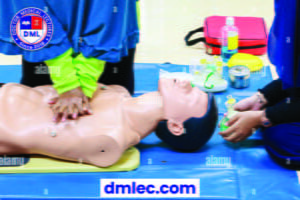
7. Strengthen Community Resilience
Groups of people that learn thorough first aid are also more capable to act as teams in an emergency, and therefore able to bounce back quicker. If others in the community get first aid trained, they become better equipped to help in all kinds of events or medical situations giving you a renewed and safer working environment.
8.Learning First Aid and Responsibility
First aid classes foster lifelong learning and personal accountability by reinforcing a collective responsibility to safeguarding others’ safety – something which transcends emergencies alone. First aid classes foster this mentality of preparedness for daily situations which improves overall safety throughout people’s daily lives.
Training in First Aid provides many advantages that go far beyond simply cutting injuries down to size; such as creating an environment of safety and preparedness and arming individuals with necessary emergency response skills to build resilience – these courses play a pivotal role in making our communities safer.
Reducing Recovery
Moreover, timely prompt treatment can help minimize injury severity and speed up recovery.
Compliance within the Workplace
Employers that offer first aid must abide by workplace safety laws in Pakistan to guarantee their employees remain safe at work.
First Aid Kits and Equipment
A basic first aid kit should consist of bandages, antiseptic wipes, washcloths, gauze pads with adhesive tape attached for scissors use and painkillers as these items will cover any basic medical emergencies that arise.
Trends of First Aid Training in Pakistan
There has been an emerging trend towards digital first aid education that allows people to study at their own pace through websites.
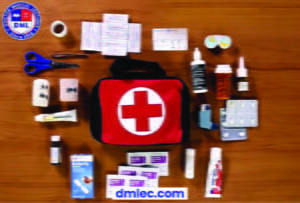
Regular Training Updates
First aid techniques are always evolving and it is crucial that we regularly retrain these techniques.
Conclusion
First aid training in Pakistan should be made accessible to everyone. Because medical treatment can sometimes take time to arrive, knowing basic healthcare could save lives in an emergency situation. Moreover, personal and workplace safety may benefit greatly from investing in first aid education, as it offers significant life-saving potential.
FAQs
Q1. What Is First Aid Information?
First aid care is the preliminary medical assistance given to someone who has been injured or taken ill suddenly, away from professional medical treatment with a view to preserve life, prevent the condition from becoming worse, ease any pain and ensure safety.
Q2. What Is PFA?
As part of first aid training in Pakistan, PFA (Psychological First Aid) is a critical element of emergency response training. PFA employs techniques such as active listening, practical assistance provision, and linking individuals with psychological health services – making it especially helpful after accidents, disasters or any event causing emotional distress. With compassionate yet encouraging assistance available through PFA services, individuals can process feelings while managing stress more effectively while initiating the healing process and beginning recovery processes.
Q3. Are online first aid courses legitimate?
Yes, online first aid classes are legitimate and depend on the instructor and criteria that they use for certification. While you are searching for first aid training here in Pakistan, it is important that the course you choose should come from a reputable and certified institute/organization to comply with local regulations, standards of certification – theory courses can give you good theoretical understanding but practical exposure is very crucial for total mastery.
Q4. How Can I Learn First Aid?
First aid training can be learned through enrolling in accredited courses offered by accredited institutions. For Pakistan Red Crescent Society-accredited institutes provide both in-person and online classes that teach vital life saving techniques like CPR and wound care; emergency situations needing emergency aid can also be managed effectively using their knowledge of first aid training methods. While theoretical knowledge may be gained online courses provide theoretical training is often necessary for full proficiency.
Q5. Why Are First Aid Certifications Essential For Students?
First aid certificates for students are vital as they provide lifesaving abilities that could save their lives in times of an emergency. Students pursuing first aid training in Pakistan gain knowledge on how to respond in cases of accidents, injuries or sudden illnesses at school and daily life – building both confidence and responsibility when helping others before competent help arrives. Furthermore, having these credentials on your resume increases job prospects in healthcare and education fields.
